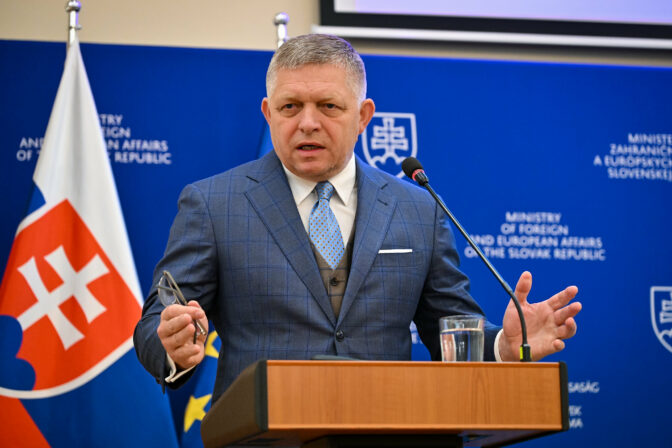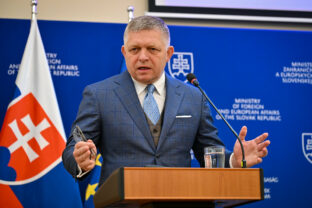BRATISLAVA, January 25, ( WEBNOVINY) – Speaker of Parliament Richard Sulik has convened the next parliamentary session for Tuesday, February 1. The draft agenda comprises 55 points.
Among the first points, lawmakers are to decide on the fate of president- vetoed bills. The first of them is the revised law on judges and lay-judges shaped by Justice Minister Lucia Zitnanska as a part of the first package of measures for opening the judiciary to public scrutiny. Originally, from January 1 it should have cut the strings that make both direct and indirect influencing of judges in their decision possible, as the presidents of the courts would not be able to award bonuses to judges. In line with the law, court decisions should be published on the Internet while the positions of judges and court chairmen should be filled in public selection procedures. President Ivan Gasparovic has however vetoed the bill. He disapproved of canceling the institute of judicial candidates or the obligation of new judges to disclose whether their relatives working in the judiciary.
Deputies will have to deal again with the revised law on funding elementary schools, high school ad school facilities The head of state vetoed the bill as he disagreed with the use of terms „public schools, public kindergartens and public school facilities.“ and instead would prefer the term „state school“. According to the amendment, church and private schools should get at least 88 percent of funds received by municipal schools or schools established by the state or a self-government.
The president also returned to parliament an amendment to the state language law, which softens some new rules approved in the previous election term. The president did not like that the Culture Ministry may but does not have to impose a fine for violations of the law’s stipulations.
Regarding the amendment to the education law the president does not agree that the law determines which foreign language should be compulsory for pupils. The law sets compulsory English lessons as of next September. The president has also vetoed the revised law on health insurers.
Parliament will deal with several deputy initiatives in the first reading. The coalition proposed public election of prosecutor general, chairman and deputy chairman of the Supreme Audit Office and candidates for constitutional justices in an amendment to the parliamentary standing order.
A trio of coalition deputies want to hike the pay of the future director general on Slovak Radio and Television (RTVS). In a draft amendment to the law on RTVS they propose to increase it from the law-set four-times to the six-times the average wage in the national economy. If the proposal goes through the RTVS director will earn about EUR 5,200 monthly, which was the salary originally proposed by the Culture Ministry, which prepared the RTVS legislation.
Parliamentary deputies of the strongest opposition party SMER-SD suggests to soften the Slovak citizenship law so that Slovaks living abroad can apply for other country’s citizenship without loosing Slovak passport. The draft amendment to the law that Robert Fico, Dusan Caplovic and Vladimir Faic delivered to parliament would allow Slovak citizens to obtain foreign citizenship if their stay in the country, where they apply for citizenship, is permitted and registered for at least six months. Citizens who would apply for Hungarian citizenship would lose Slovak one in accordance with the last controversial revision to the law on citizenship. The amendment also enables people who lost Slovak citizenship between July 17, 2010 and April 30, 2011 after being granted citizenship of another country to regain the Slovak citizenship in a much simpler way compared with the standard procedure.
SITA












